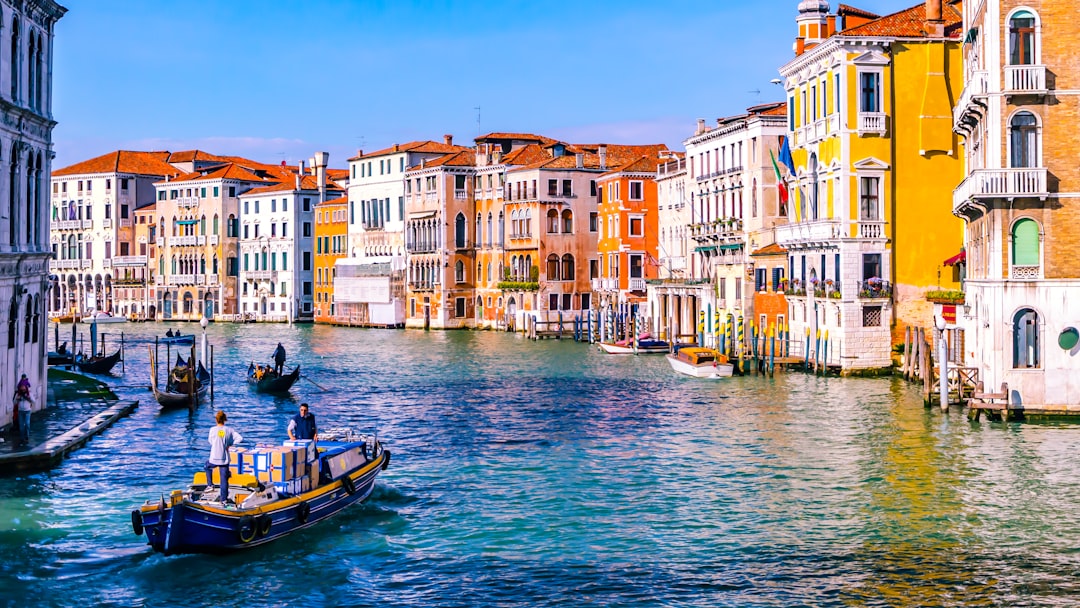All Nonfiction
- Bullying
- Books
- Academic
- Author Interviews
- Celebrity interviews
- College Articles
- College Essays
- Educator of the Year
- Heroes
- Interviews
- Memoir
- Personal Experience
- Sports
- Travel & Culture
All Opinions
- Bullying
- Current Events / Politics
- Discrimination
- Drugs / Alcohol / Smoking
- Entertainment / Celebrities
- Environment
- Love / Relationships
- Movies / Music / TV
- Pop Culture / Trends
- School / College
- Social Issues / Civics
- Spirituality / Religion
- Sports / Hobbies
All Hot Topics
- Bullying
- Community Service
- Environment
- Health
- Letters to the Editor
- Pride & Prejudice
- What Matters
- Back
Summer Guide
- Program Links
- Program Reviews
- Back
College Guide
- College Links
- College Reviews
- College Essays
- College Articles
- Back
Let's Talk About The Merchant of Venice
Many say that “times change, but human nature doesn’t.” This is a common belief of those who decided that Shakespeare’s play The Merchant of Venice must still be studied in the 21st century. But is the play still relevant? Do the messages in the play still need to be heard? What messages are in there anyway?
Out of the many messages The Merchant of Venice delivers, the most discussed today might be those about Anti-Semitism. In the play, Shakespeare portrays Shylock as a greedy moneylender who is so heartless in the face of revenge that he would willingly take a pound of Antonio’s flesh. The characterisation of Shylock strongly corresponds with the typical image of a Jew in Elizabethan England. Thus, using Shylock and the stigma toward him in the story, Shakespeare highlights Anti-Semitism in his society, to which his contemporary audience could relate.
Flashing forward to our modern time, Anti-Semitism has become much less relevant. Ever since the Holocaust, society has been very cautious about treating the Jewish race correctly. Anti-Semitism is limited only to a few extreme groups that are largely frowned upon by the rest of humanity. Jews now play important and respected roles in society, and their money lending practices are well accepted. It is difficult to imagine a Shylock living in 2022. Therefore, there is a reason to believe that the play’s job is done if its sole purpose is to criticise Anti-Semitism.
However, I would say that the play is still relevant because it extensively explores the topic of stereotypes, which are definitely still alive today. Apart from Shylock being a representation of Jews, Shakespeare also uses Portia to mirror clichés about women. Even Launcelot saying the word “ergo” is the playwright’s joke about the stereotype that educated people all speak Latin. Although the prejudice against Jews has diminished, new stereotypes about race, gender, age, religion and class are still being created in our society. For example, 9/11 and other violent events have enforced the idea that all Muslims are terrorists. This stereotype deeply affects the public perception of the religion and has unfortunately posed barriers for Muslims to feel welcome in many communities. Considering that we live in such a globalised world, it would be justified to believe that the play matters even more today as a reminder that stereotypes are still in the air and profoundly affecting the relationships between individuals.
Speaking of relationships, I personally see another interesting take on parent-child relationships in the play. The bard creates three drastically contrasting pairs of parents and children. Wealthy Portia obeys her dead father, while eloped Jessica clearly goes against the will of greedy Shylock. To the amusement of the audience, quick-witted Launcelot fools his sand-blind father around. These three models don’t just belong to the Elizabethan age because last time I checked, parents were still a thing for us children. What’s more, as society advances quicker, the relationships between each generation are becoming more complex, making these ideas more relevant than at any time in history.
In fact, Portia’s relationship with her dad reminds me of arranged marriages. In Shakespeare’s time, this kind of matrimony was commonly practised, and the tradition persisted in Europe until the 1700s. Today, it still takes place in countries like India, Japan and Iran. Some royal families and elites in the world also do so to maintain status and wealth. An arranged marriage may sound unhappy and limiting personal freedoms, but Portia gets a happy ending with Bassanio in the play. That’s actually not a surprise. According to a 1980s study done in India that used the Rubin’s Love Scale, arranged marriages start off with less love but end up with twice the amount of love than their autonomous counterparts by the ten-year mark. This is really getting quite interesting – for we do have a reason to believe that in ten years time, Portia would be twice as happy as Jessica.
Coming this far, it seems one can never finish analysing the relevance of Shakespeare’s The Merchant of Venice. People of every age, place and situation can always flip open a copy and find their own resonance with this masterpiece. From this perspective, we could say that the play matters more than ever, and discussions about it must be continued.
Similar Articles
JOIN THE DISCUSSION
This article has 0 comments.

